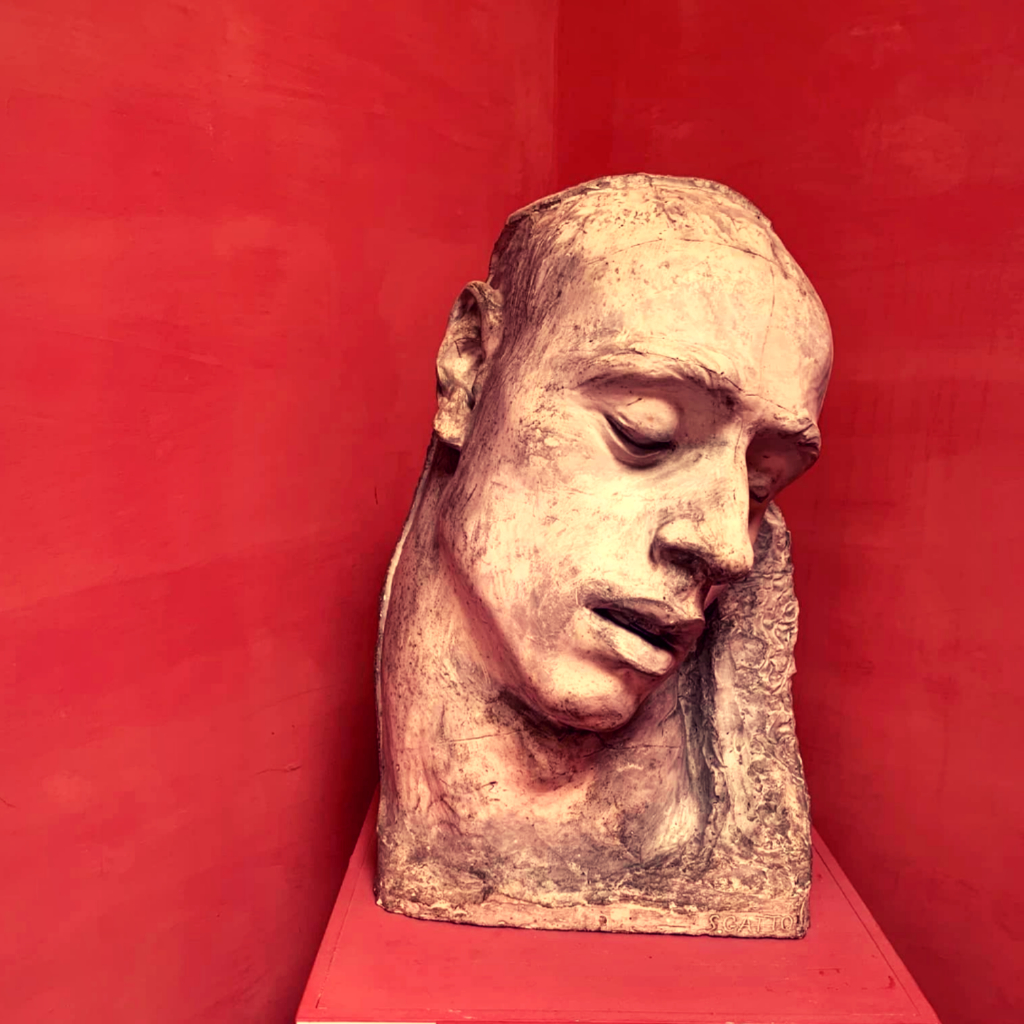In July 1950, Shostakovich was in Leipzig for a festival marking the bicentenary of Bach’s death. As a jurist for the international piano competition, he heard his young compatriot Tatiana Nikolayeva play music by Bach, including a Prelude and Fugue from the Well Tempered Clavier. It proved to be a propitious moment. While he had long admired Bach, he found Nikolayeva’s playing inspiring and began to think about composing hi own cycle of preludes and fugues.
Shostakovich wrote his set of Twenty-Four Preludes and Fugues Op. 87 for her between October 1950 and March 1951. Nikolayeva telephoned him every day during the period of composition, going to his home to hear him play the most recently written prelude and fugue, and gave the first performance of the complete work in Leningrad in 1952. Their friendship lasted until the day of his death, more than twenty-five years later. The State Prize she won at that time was in recognition of her services as a pianist and also for the composition of a piano concerto. From 1959 Nikolayeva taught at the Moscow Conservatory and has left a generation of devoted students including Nikolai Lugansky. She was also a composer. Her works include two piano concertos, twenty-four concert studies for piano and a piano sonata as well as an arrangement for solo piano of Prokofiev’s Peter and the Wolf.
Nikolayeva had a career as teacher and performer in the USSR, but it was not until the early 1980s that she began to perform in Europe, Japan and America, eventually playing in more than thirty-five countries. She regularly visited London to give concerts and master-classes and appeared at the ‘Last Night of the Proms’ playing Shostakovich’s Piano Concerto No. 2 in F major Op. 102. Often her programmes would be of major works such as Bach’s ‘Goldberg’ Variations BWV 988, Die Kunst der Fuge BWV 1080 or Das wohtemperierte Klavier complete (performed over four evenings). Her repertoire was vast, with some fifty works for piano and orchestra ranging from Bach to Bartók and Shostakovich, all the keyboard works of Bach, all the piano sonatas by Beethoven, plus major compositions by Haydn, Mozart, Schubert, Schumann, Chopin, Scriabin, Rachmaninov, Tchaikovsky, Arensky, Liadov and Stravinsky.
She had a phenomenal memory and travelled abroad without music scores. On one occasion, when she came to rehearse Tchaikovsky’s Piano Concerto No. 2 in G major Op. 44 she asked the conductor if they were playing the abbreviated version by Alexander Siloti, which she was expecting to play. They were not, so Nikolayeva launched into a performance of the original version. In the 1990s she played Rachmaninov’s Piano Concerto No. 4 Op. 40 in America and it was during a performance in San Francisco of Shostakovich’s Preludes and Fugues Op. 87 that she suffered a stroke. She continued to play to the end of the first half of the programme, but had to cancel the rest of the performance. She died 9 days later.
Excerpt from Interview “A Conversation with Bruce Duffie”:
BD: Since you do some teaching, what general advice do you have for young pianists?
TN: It’s not easy to combine my work as a pedagogue with my performing career which takes me all over the world. I also compose, and of course I have a private life with my family, so it’s difficult; but I love very much the young generation, and to be surrounded by the young. When I teach, I also learn from them and it’s very inspiring. They make me feel younger and I am rejuvenated! I believe I know what they try to reach, what interests them. I try to help them in their future artistic life onstage. I play many concerts myself, at least 100 a year, so I think I know how to help them. The traditions of the Moscow Conservatory are very rich and all of us who teach are trying to preserve them. We try to help the youngsters find the spirit of these works, to be profound and not superficial. The technical mastery is very important, but what’s even more important is to discover the content of a composition and to relate it to the public. The modern piano allows so many possibilities. Its tone palette is so rich. It can sound like a full orchestra, and the artistic level must come up to the technical level to give the composers what they wanted.
BD: [With a sly wink] One last, very easy question. What’s the purpose of music?
TN: [Smiles] Mmmmmm. The basic purpose of music is to help people in their life. The art of music, unlike any other form of art, can help human beings to cope with the tragic losses in life, and bring happiness into their life. This way, I think, music is unlike any other art. For example, I attended the concerts of the Chicago Symphony when they came to Moscow on a tour, and I saw how happy the audience was. It makes the life a bit easier, even though we have to deal with the present situation in Russia. It was heartwarming to see how happy they were to listen to the great music being played, and it was great to see how music affected the people who were there. And I believe it will be like this forever, that this special language of music will continue helping people in their lives.



